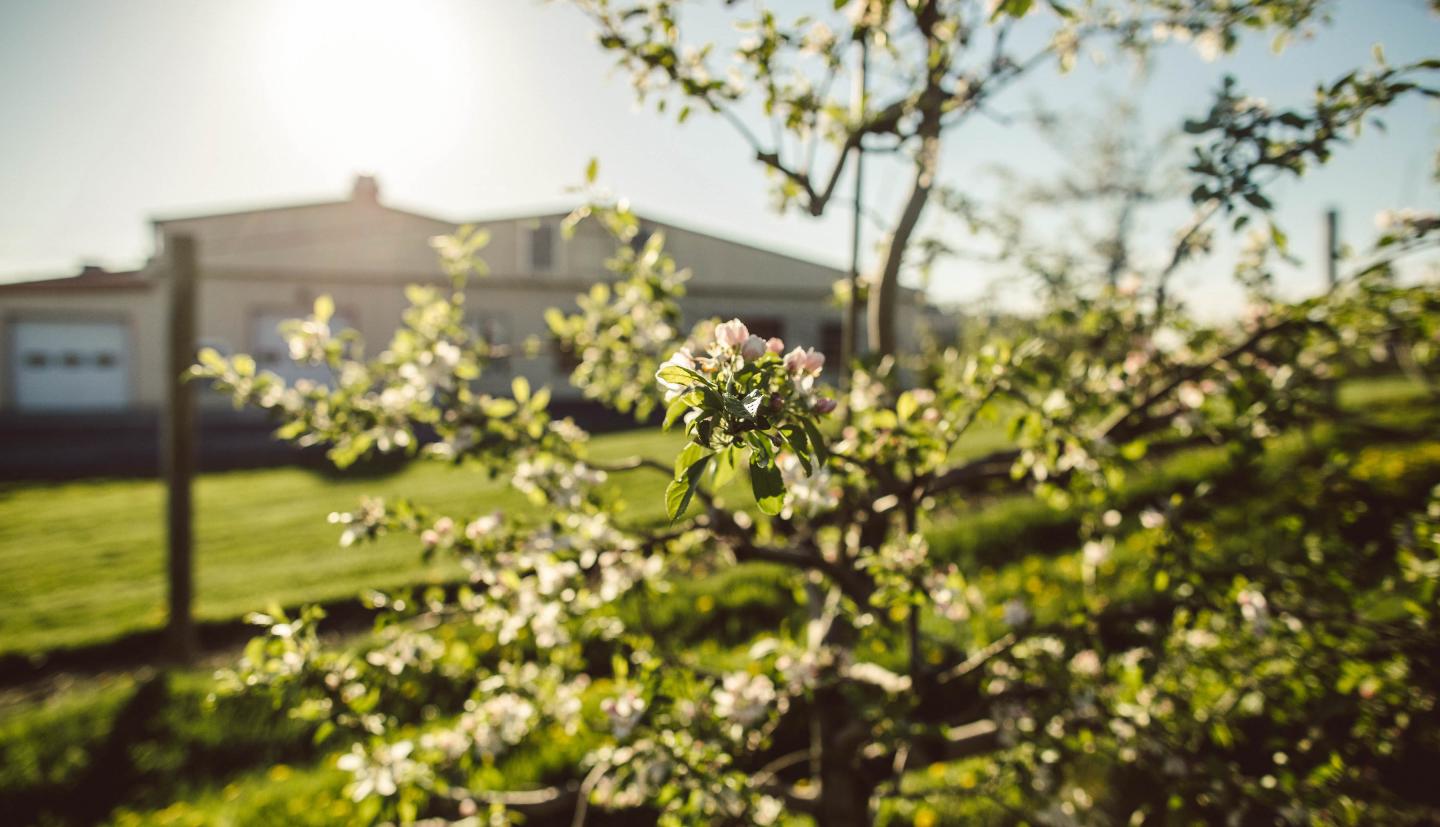Sustainable solutions to problems affecting bee health

Project Overview
Sustainable solutions to problems affecting bee health
This reasearch team looked at the potential impact of fungicides on wild bees. Bees, both wild and managed, are essential for growing apples and other specialty crops in New York. The project seeks to support sustainable agricultural practices in orchards and farms.
Both wild and managed bees are essential for the production of specialty crops in New York. Apples, one of New York's most valuable crops, depend entirely on the pollination services of bees.
But bees are vulnerable: Reduced natural habitat and increased pesticide use negatively impact the abundance of wild bees in eastern apple orchards. Fungicides, in particular, have a negative impact on wild bee communities. Although fungicides have low direct toxicity to bees, fungicides may be disrupting the microbial communities that feed bee larvae. When solitary bees create nests to lay eggs, the pollen and nectar they gather to feed their larvae host a diverse community of bacteria and fungi – known as the brood cell microbiome. Fungicides may be negatively impacting this microbiome in ways that harm bee larval development.
This project explored how fungicides and other agrochemicals impact the brood cell microbiome of Osmia cornifrons, commonly known as the mason bee, and how changes in the microbial community influence bee larval development. In 2020, we conducted a series of experiments to determine how a widely used fungicide – cyprodinil – at three dosage levels changes the normal progression of larval development and whether the fungicide impacted the microbial community of the pollen upon which these larvae are feeding. In 2021, we conducted similar experiments with two other widely used fungicides – difenoconazole and captan – at two dosage levels. In 2022, we conducted a field experiment to determine the effect of proximity to pesticide usage in natural environments.
The Impacts
We are still analyzing the data but there does not seem to be a marked impact of fungicidal treatment on larval development in terms of survivorship, development time or larval weight. We are awaiting the results of analyses on pesticide toxicity in natural bee environments and on DNA sequencing to understand how fungicides may impact microbial communities in pollen and nectar. Better understanding of these microbial communities will illuminate fundamental features of bee larval development: in a related study in which we modified or eliminated the brood cell microbiome through sterilization, we found that microbes contribute substantially to larval nutrition and are in some cases essential for larval development.
Our project seeks to support more sustainable agricultural practices in the orchards and farms that produce high-value, pollinator-dependent crops, such as apple, apricot, blueberry, cantaloupe, cherry, cranberry, peach, pear, and plum. Consumers will benefit from reduced pesticide use and healthier agroecosystems. Agricultural workers will benefit from a healthier working environment.

Principal Investigator
Project Details
- Funding Source: Hatch Multistate
- Statement Year: 2022
- Status: Completed Project
- Topics: Pollinators, bees, apples

